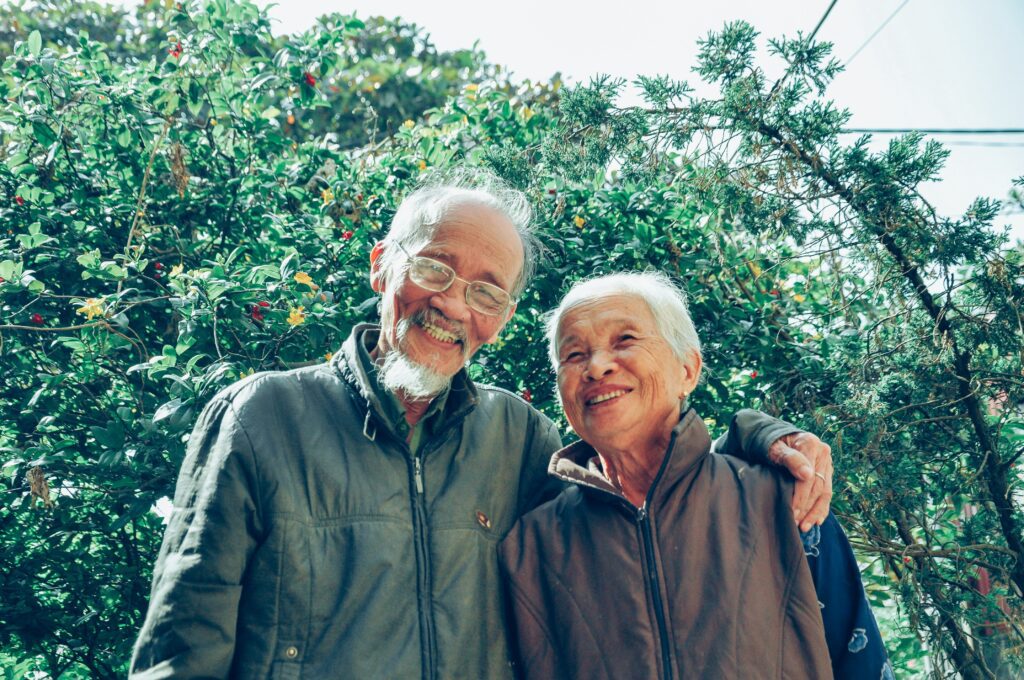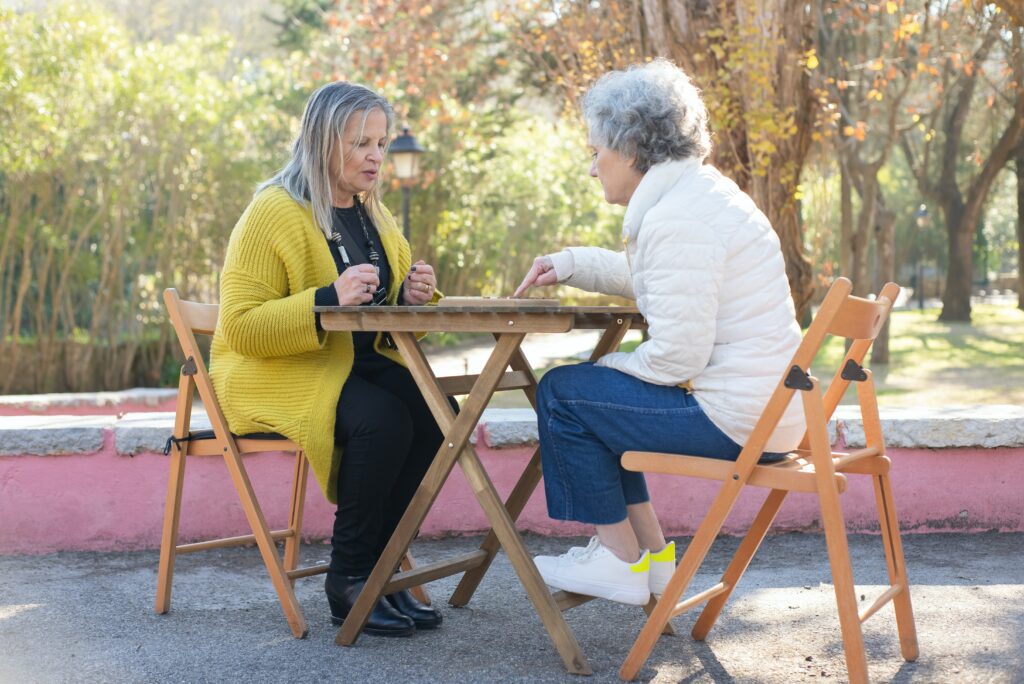How to Help an Aging Loved One Emotionally
Concerns like loneliness and grief might make older persons more susceptible to emotional health problems as they age. Even though everyone experiences mood swings from time to time, it’s crucial for caregivers to prepare strategies to improve their senior loved ones’ spirits when these feelings arise. Make use of these suggestions to improve the emotional health of a loved one.
Depression, loss of interest in life and some old age problems are more common among older persons. The death of a spouse, aches and pains, or a decline in independence and mobility are frequent triggers. It’s crucial to often check in on the senior citizens in your life.
The elderly are just as complicated as the rest of us. We have both physical and emotional demands. In this article, we’ll go through various methods you might support an aging loved one emotionally.
What are the Elderly’s Emotional Needs?
Many people equate growing older with changes in how their bodies work, but few know that aging also brings emotional changes. The challenges may be exacerbated by the addition of changes brought on by dementia or other tough situations to the changes brought on by normal aging.
Yet, becoming more aware of the emotional requirements of the elderly will help you offer the greatest assistance possible. Here are some of the senior’s emotional needs that you must be aware of.
Privacy
Relying on others may cause someone to feel like they are losing their dignity and right to privacy.
What you can do is continue to communicate with them directly, treat them as an adult, and take into account their wants and ideas. Continue to discuss their choices and preferences with them. Continue to uphold their dignity and privacy while allowing them to participate in discussions about their health and well-being.
Solitude and Separation
As people age, their emotional requirements may also alter. They might witness the aging of their friends, which could make them feel alone. In addition, your elderly family member could feel ignored if you and the other adults are too busy with your obligations and daily tasks. You may help them by spending time with them. Let them see their buddies or hang out with other folks to mingle.
Fear and Anxiety
They could always be concerned for their welfare. They continuously worry about what changes may occur in this era of their lives, where they feel less dependent as they age. They are not as strong and attentive as they once were. Keeping children involved in pursuits that give them a feeling of direction is beneficial.
Self-worth
Because they believe they require more care from their family members, they may also feel less worthy of themselves. You can urge your family members to visit and interact with your senior relatives frequently, especially the younger ones, so they won’t feel so alone and will feel special. Allowing them to engage in hobbies or activities that give them a sense of achievement can help them develop their confidence.
Behavioral Differences in Older People
Aging has a variety of emotional effects, many of which are advantageous. For instance, older people are often more emotionally stable than younger people.
They also tend to concentrate more on the positive aspects of life. Nonetheless, we need fresh assistance when we encounter new life obstacles. Moreover, aging might provide a variety of difficulties.
So what are the elderly’s emotional needs? For instance, the vulnerability of the elderly is well known. They could be acutely aware of the potential danger that even a small fall poses to their independence.
Many elderly people worry more about their safety when they know their vulnerability. By creating an atmosphere where a loved one consistently feels safe and secure, you might try to reduce their anxiety.
Then there are alterations brought on by diseases. For instance, conditions like Alzheimer’s might affect thinking, feeling, and memory. Thus it’s crucial to comprehend the emotional requirements of people with dementia.
Alzheimer’s disease can also impair attention spans, which can cause irritation, irritability, and even aggression. The emotional requirements of a person with Alzheimer’s may become even more challenging to handle since people may lose faith in their moral judgment and experience social shame due to their illness.
The Value of Emotional Support in Later Life
Elderly care must include emotional support since it may greatly enhance an older adult’s overall quality of life to take care of their emotional and physical needs. Additionally, it is crucial to offer emotional support to older patients since research has shown that doing so improves their health and lowers their stress levels.
Here are some benefits of looking for in-home care providers that can provide your older loved one with physical and mental support to minimize the helplessness, stress, and sadness frequently associated with aging.
Mobility problems develop with aging. It might take hours to complete what looked like a quick trip to the market. One may have intense emotions of uneasiness and melancholy when one observes a marked loss in their mobility. This allows individuals to feel independent and free in their abilities to move about freely.
Regrettably, many people who get older frequently struggle with mobility problems. Employing the services of a qualified in-home care provider is beneficial since these carers can offer your senior loved one emotional support as they go about their daily activities.
Some things make our life happy. Since it gives them a sense of independence, hobbies are extremely important to the pleasure of seniors. Many seniors may find it challenging to continue their enjoyable pastimes as they age. For instance, someone who adores gardening could find it challenging to keep up with their activity long into old age.
Most people equate becoming older with losing physical function, losing one’s sense of balance, and worsening vision and hearing.
Although these are all significant aspects of becoming older, one of the most prevalent concerns among seniors is a loss of companionship and the desire to fill that emotional hole, particularly if the senior lives alone. The good news is that there are in-home care organizations that offer carers who can help older people with their daily tasks and give them much-needed companionship regularly.
Mental Health of the Elderly
Many of the problems affecting older folks are as follows:
- Losing a beloved family member through death or relocation.
- Isolation as a result of the children’s work and school commitments.
- Regular duties are not being performed owing to retirement.
- Loss of financial dependence due to the absence of steady income.
- High medicine consumption after receiving several diagnoses causes dissatisfaction.
- Difficulty adjusting to physical obstacles like hearing loss
How can we meet the emotional needs of the elderly?
Planning: Keep an eye out for impending eagerness. Inevitably, new challenges to one’s physical, sensory, and emotional capacities will arise since the conditions will never be the same. They might cruelly harm their emotional health. Providers of home care services should be on the lookout for mood changes and take appropriate action. Further, it is also the caregiver’s responsibility to provide on-time medicine with correct doses.
Grooming: It’s critical to promote a proper care routine to maintain dignity and self-worth. Grooming is the first aspect of personal care that comes to mind, but there are other considerations. Helping older adults with their everyday tasks fosters a sense of respect. The following are helpful hints for helping older citizens with washing, clothing, dental hygiene, and grooming.
Recreative pursuits:
- Be aware of the needs of seniors.
- Speak to them, pay close attention to their needs, and ask about the things they are most interested in.
- Establish a recreational schedule.
- Do each task correctly.
For instance, reading favorite novels, going for a stroll, going to community centers, organizing visits from friends and family, having a dry picnic, and more.
Connecting with friends & family: Help the elderly connect with their closest friends and relatives. Urge family members to visit and utilize communication tools frequently to keep in touch. Internet connection may be advantageous to elderly folks. Therefore we may also teach them how to utilize technology.
Final thoughts
While growing older comes with many difficulties, having loved ones who care about you may enhance your quality of life. Making your elderly loved one’s day a little brighter only takes a little effort.






